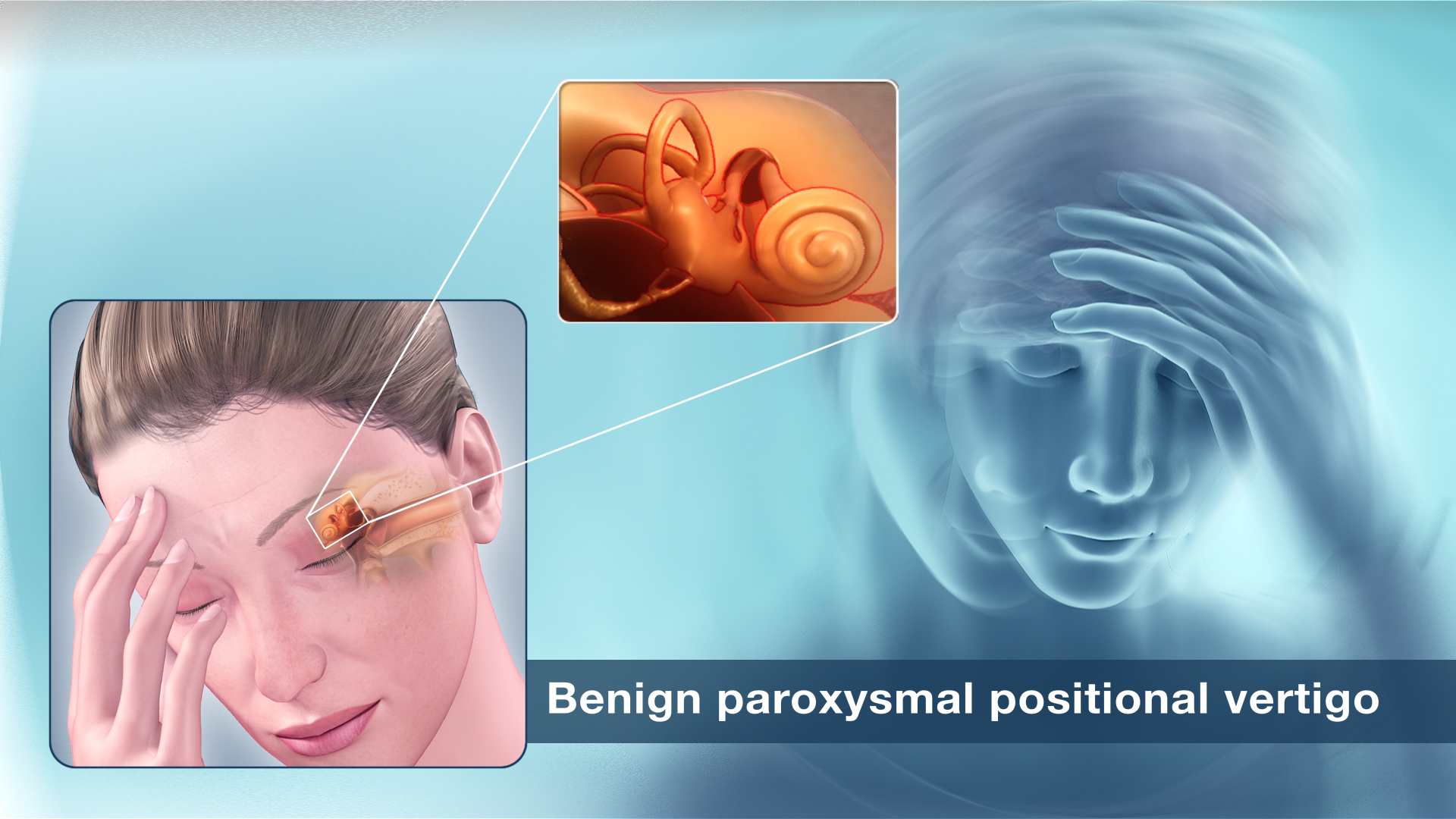Extreme vertigo symptoms can be debilitating and life-altering. This comprehensive guide will delve into the causes, symptoms, diagnosis, treatment, and prevention of extreme vertigo, empowering you with the knowledge and tools to manage this condition effectively.
Understanding the complexities of extreme vertigo is crucial for individuals experiencing its debilitating effects. This guide will provide clear and accessible information, empowering you to take control of your health and well-being.
Introduction

Extreme vertigo is a debilitating condition characterized by severe dizziness and a sensation of spinning or movement. It can be caused by various underlying medical conditions affecting the vestibular system, which is responsible for balance and spatial orientation.
If you are experiencing extreme vertigo symptoms, such as dizziness, nausea, and vomiting, it is important to seek medical attention. Vertigo is a condition that affects the inner ear and can cause a range of symptoms, including dizziness, nausea, and vomiting.
For more information on what is vertigo sickness, please visit: what is vertigo sickness . If you are experiencing extreme vertigo symptoms, it is important to seek medical attention as soon as possible.
The causes of extreme vertigo can be broadly categorized into two main groups:
Peripheral Causes
- Benign paroxysmal positional vertigo (BPPV):A common cause of vertigo triggered by specific head movements, caused by dislodged crystals in the inner ear.
- Ménière’s disease:A chronic condition characterized by episodes of vertigo, hearing loss, and tinnitus, caused by a buildup of fluid in the inner ear.
- Vestibular neuritis:An inflammation of the vestibular nerve, which connects the inner ear to the brain.
Central Causes
- Stroke:A blockage or rupture of a blood vessel in the brain, which can affect the areas responsible for balance and coordination.
- Multiple sclerosis (MS):A neurological disorder that affects the central nervous system, including the vestibular system.
- Brain tumors:Growths in the brain that can compress or damage the vestibular pathways.
Symptoms of Extreme Vertigo: Extreme Vertigo Symptoms

Extreme vertigo is a debilitating condition that can cause severe dizziness and imbalance. The most common symptoms of extreme vertigo include:
- Dizziness: This is the most common symptom of extreme vertigo. It can feel like you are spinning or moving, even when you are standing still.
- Nausea and vomiting: These symptoms are often associated with extreme vertigo. They can be caused by the dizziness and imbalance that is caused by the condition.
- Headaches: Headaches are another common symptom of extreme vertigo. They can be caused by the pressure that is put on the head by the dizziness and imbalance.
- Tinnitus: Tinnitus is a ringing or buzzing sound in the ears. It is often associated with extreme vertigo and can be caused by the pressure that is put on the ears by the dizziness and imbalance.
- Vision problems: Vision problems, such as blurred vision or double vision, are also common symptoms of extreme vertigo. They can be caused by the dizziness and imbalance that is caused by the condition.
The following table provides a more detailed description of the symptoms of extreme vertigo:
| Symptom | Description |
|---|---|
| Dizziness | A feeling of spinning or moving, even when you are standing still. |
| Nausea and vomiting | These symptoms are often associated with extreme vertigo and can be caused by the dizziness and imbalance that is caused by the condition. |
| Headaches | Headaches are another common symptom of extreme vertigo. They can be caused by the pressure that is put on the head by the dizziness and imbalance. |
| Tinnitus | Tinnitus is a ringing or buzzing sound in the ears. It is often associated with extreme vertigo and can be caused by the pressure that is put on the ears by the dizziness and imbalance. |
| Vision problems | Vision problems, such as blurred vision or double vision, are also common symptoms of extreme vertigo. They can be caused by the dizziness and imbalance that is caused by the condition. |
Diagnosis of Extreme Vertigo
Accurate diagnosis of extreme vertigo is crucial for determining the underlying cause and initiating appropriate treatment. The evaluation process typically involves a combination of tests and examinations conducted by a qualified healthcare professional, such as an otolaryngologist or neurologist.
Medical History and Physical Examination
The initial step involves gathering a detailed medical history from the patient, including symptoms, duration, any associated conditions, and medications. This is followed by a physical examination that focuses on the ears, eyes, and neurological system, which includes balance and coordination tests.
Imaging Tests
Imaging tests like CT scans or MRIs may be ordered to visualize the inner ear structures, brain, and blood vessels. These tests can help identify any abnormalities or lesions that may contribute to vertigo.
Balance Function Tests
Specific balance function tests are used to assess the function of the vestibular system, which is responsible for maintaining balance. These tests include:
- Electronystagmography (ENG): Records eye movements in response to various stimuli, such as head movements or caloric stimulation.
- Videonystagmography (VNG): Similar to ENG but uses a video camera to record eye movements.
- Rotary chair test: Evaluates the response of the vestibular system to controlled head rotations.
Audiological Tests
Audiological tests, such as hearing tests and tympanometry, are performed to assess hearing function and rule out any hearing-related issues that may contribute to vertigo.
Role of a Doctor
A healthcare professional plays a crucial role in diagnosing extreme vertigo. They interpret the results of tests, determine the underlying cause, and recommend appropriate treatment options. It’s important to consult a qualified doctor for an accurate diagnosis and proper management of vertigo.
Treatment for Extreme Vertigo

Extreme vertigo can be a debilitating condition, but there are a number of effective treatments available. The best treatment for you will depend on the underlying cause of your vertigo.
There are two main types of vertigo: peripheral vertigo and central vertigo. Peripheral vertigo is caused by a problem in the inner ear, while central vertigo is caused by a problem in the brain. The most common cause of peripheral vertigo is benign paroxysmal positional vertigo (BPPV), which is caused by a small piece of calcium carbonate (ear crystal) that has become dislodged in the inner ear.
Medications
There are a number of medications that can be used to treat vertigo, including:
- Anti-nausea medications: These medications can help to reduce the nausea and vomiting that is often associated with vertigo.
- Anti-vertigo medications: These medications can help to suppress the activity of the vestibular system, which is responsible for balance.
- Sedatives: These medications can help to reduce the anxiety and dizziness that is often associated with vertigo.
Physical Therapy
Physical therapy can be helpful for treating vertigo by teaching you exercises that can help to improve your balance and reduce your symptoms.
Surgery, Extreme vertigo symptoms
Surgery may be necessary to treat vertigo if other treatments have not been successful. Surgery can be used to remove a tumor or other growth that is causing vertigo, or to repair a damaged nerve.
| Treatment | Description |
|---|---|
| Anti-nausea medications | Reduce nausea and vomiting |
| Anti-vertigo medications | Suppress the activity of the vestibular system |
| Sedatives | Reduce anxiety and dizziness |
| Physical therapy | Exercises to improve balance and reduce symptoms |
| Surgery | Remove tumors or growths, repair damaged nerves |
Prevention of Extreme Vertigo
Extreme vertigo can be a debilitating condition, but there are steps you can take to prevent it from occurring. Here are some tips:
Lifestyle Changes
- Avoid sudden movements, such as standing up quickly or turning your head too quickly.
- Get regular exercise to improve your balance and coordination.
- Eat a healthy diet that includes plenty of fruits, vegetables, and whole grains.
- Avoid caffeine and alcohol, as these substances can worsen vertigo.
- Get enough sleep. When you’re well-rested, you’re less likely to experience dizziness or vertigo.
Exercises
- The Epley maneuver is a series of head and body movements that can help to reposition the crystals in your inner ear and relieve vertigo.
- The Brandt-Daroff exercises are a series of head and body movements that can help to improve your balance and coordination.
- Vestibular rehabilitation therapy is a type of physical therapy that can help you to manage your vertigo symptoms.
Medical Treatment
- Medications, such as anti-nausea medications or vestibular suppressants, can help to relieve vertigo symptoms.
- Surgery may be necessary in some cases to correct the underlying cause of your vertigo.
Epilogue
Managing extreme vertigo symptoms requires a multifaceted approach that encompasses medical intervention, lifestyle modifications, and self-care strategies. By understanding the underlying causes and available treatment options, individuals can effectively mitigate the impact of extreme vertigo on their daily lives and regain a sense of stability and well-being.
